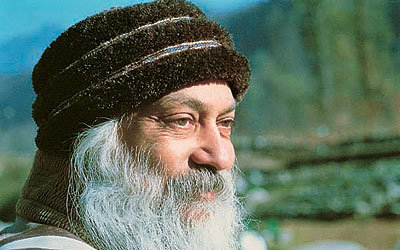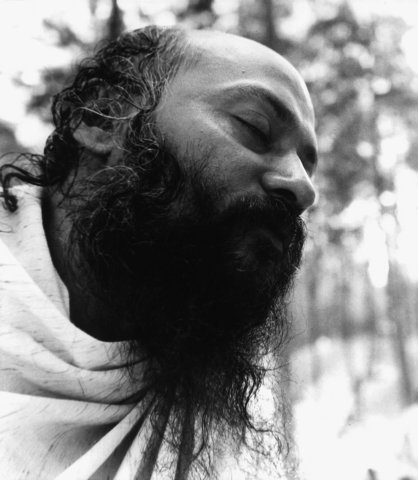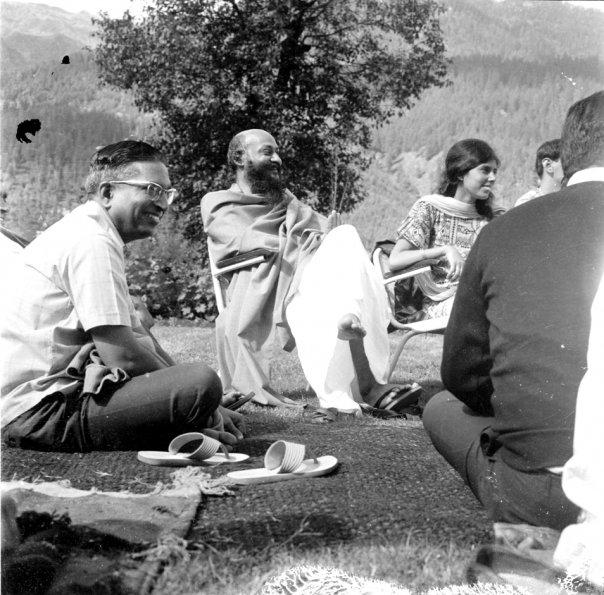Osho Quotes on Purity
- What is purity? Don’t misunderstand me, purity has nothing to do with morality. Don’t interpret it in a moralistic way. Purity has nothing to do with puritans. Purity simply means an uncontaminated state of mind, where only your consciousness is and nothing else. Nothing else really enters into your consciousness, but if you hanker to possess, that hankering contaminates you. Gold cannot enter into your consciousness. There is no way. How can you take gold into your being? There is no way. Money cannot enter into you r consciousness. But if you want to possess, that possessiveness can enter into your consciousness. Then you become impure. If you don’t want to possess anything, you become fearless. Then even death is a beautiful experience to pass through.
- Your innermost core has always been pure; purity is intrinsic to you, it cannot be taken away. Your virginity is eternal; you cannot lose it, there is no way to lose it. You can only forget about it or remember it. If you forget about it, you live in confusion; if you remember it, all is clear. Again, I will not say “certain,” but just “clear.” All is transparent. That transparency is freedom, that transparency is wisdom. This transparency is your birthright; if you are not claiming it, nobody else is responsible except you. Claim it! It is yours. It is yours just for the asking.
- My whole message is to see the truth, to see the hell that ego creates in the name: of perfection, uniqueness — and to let it drop. Then there is a tremendous beauty — no ego, no self, just a deep emptiness. And out of deep emptiness is creativity, out of that nothingness arises bliss, SATCHITANANDA, truth. Being, bliss, all arise out of that absolute purity. When the ego is not, you are a virgin. Christ was born out of a virgin; your nothingness is that Mother Virgin, Mother Mary.
- People have their own reasons. Even laughter is businesslike; even laughter is economic, political. Even laughter is not just laughter. All purity is lost. You cannot even laugh in a pure way, in a simple way, childlike. And if you cannot laugh in a pure way, you are losing something tremendously valuable. You are losing your virginity, your purity, your innocence.
- Whenever Buddha uses the phrase ‘impure mind’ you can misunderstand it. By ‘impure mind’ he means mind, because all mind is impure. Mind as such is impure, and no-mind is pure. Purity means no-mind; impurity means mind.
- Drop things and go into thoughts; then one day thoughts also have to be dropped and then you are left alone in your purity, then you are left absolutely alone. In that aloneness is God, in that aloneness is liberation, moksha, in that aloneness is nirvana, in that aloneness for the first time you are in the real.
- All that you need is just to be watchful, and nothing will affect you. This unaffectedness will keep your purity, and this purity has certainly the freshness of life, the joy of existence — all the treasures that you have been endowed with. But you become attached to the small things surrounding you and forget the one that you are. It is the greatest discovery in life and the most ecstatic pilgrimage to truth.
- Samadhi is your very nature in its absolute clarity, in its absolute purity, in its absolute awareness.
- No-mind is clarity, purity, innocence. No-mind is the real way to live, the real way to know, the real way to be.
- Talk less, listen only to the essential, be telegraphic in talking and listening. If you talk less, if you listen less, slowly slowly you will see that a cleanliness, a feeling of purity, as if you have just taken a bath, will start arising within you. That becomes the necessary soil for meditation to arise. Don’t go on reading all kinds of nonsense.
- Zen does not want you to renounce the world but to renounce the mind, so that you can find the empty heart. The empty heart is your purity, your virginity. This empty heart opens the door to the universal and the eternal.
- When you are in deep meditation, you feel a great serenity, a joy that is unknown to you, a watchfulness that is a new guest. Soon this watchfulness will become the host. The day the watchfulness becomes the host, it remains twenty-four hours with you. And out of this watchfulness, whatever you do has a wisdom in it. Whatever you do shows a clarity, a purity, a spontaneity, a grace.
- Remove knowledge, information, remove all your egoistic trips. Remove desires, remove memories, imaginations, remove the whole mind. Become a no-mind. That is purity, and in that purity wisdom blooms.
- Only a no-thought is pure, because then you are utterly yourself, alone, nothing interfering. Jean-Paul Sartre says: The other is hell. And he is right in a way, because whenever you are thinking of the other you are in hell. And all thoughts are addressed to others. When you are in a state of no-thought you are alone, and aloneness is purity. And in that aloneness happens all that is worth happening.
- Don’t teach a child Christianity, HYinduism, Jainism. At the most, give him a milieu, if you love him, so that he can grow a sensitivity towards what religion is in its essence in its purity. Don’t teach him about so many flowers, just let him become sensitive to the fragrance of it — that will do. THAT is baptism.
- Purity does not mean that you should eat food only prepared by a brahmin; purity does not mean that you should eat only when the sun is in the sky; purity does not mean that you should only wear this and you should not wear that. Purity means living out of no-mind, living spontaneously, moment to moment like a child, innocently — living from a state of not knowing. All knowledge is cunning, and all knowledge corrupts. Living from a state of not knowing — that is purity.
- By purity Buddha never means moral purity; by purity he means childlike innocence. There is a great difference between moral purity and childlike innocence. Moral purity is cunning, clever. It is not really purity, it is something imposed. It has a motivation. The moral person is trying to attain to heaven, to otherworldly joys; he wants to become immortal. The moral person is not desireless: his object of desire has changed and he is ready to sacrifice everything for his new object of desire. He imposes purity upon himself, but that purity is not even skin-deep. Deep down he is cunning, manipulating. In fact, he is trying to manipulate God according to his desires.
- Remember always, with Buddha purity is never a moral concept. He is not a priest, he is not a politician. He is a man who has gone beyond all dualities — the duality of good and bad included. Then what can he mean by purity? By purity he always means innocence, just like a small child who knows nothing of what is good and what is bad. The sage also becomes a child again, but he goes beyond. The child is below the duality, and the sage is beyond duality. One thing is similar, that both are not part of the world of duality, of the world where everything is divided into polar opposites: good and bad, night and day, love and hate, life and death, this world and that world, the sinner and the saint. The sinner is one who knows what is good and what is bad, but follows the bad. The saint is one who knows what is good and what is bad, but follows the good. And the sage is one who knows what is good and what is bad, but has gone beyond both and is no longer interested in those divisions. He lives in a choiceless awareness. That is purity.



